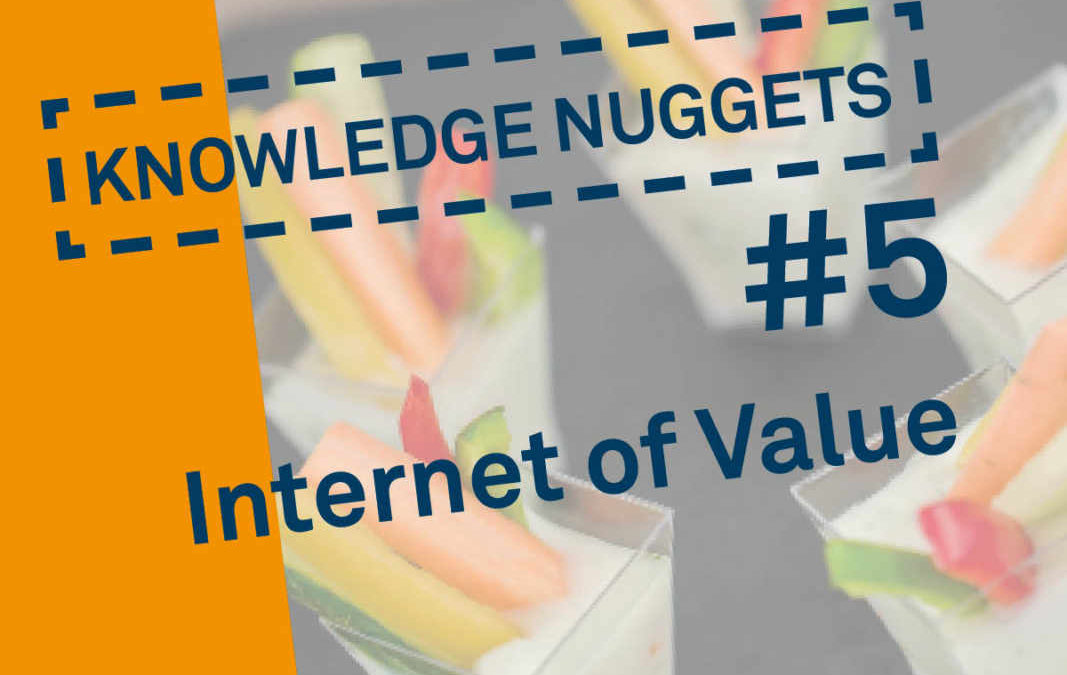In the context of cryptocurrencies, blockchain and the Platform Economy, the term “Internet of Value” (IoV) is also appearing with increasing frequency. To explain the term, it’s best to start from the beginning: The classic Internet is a decentrally organized computer network that is predominantly used to exchange information or data. In its further development, the Internet of Things (IoT), everything revolves around the linking of smart objects that communicate with each other, machines and, via systems, people. If we go one step further, the Internet of Value stands for the transmission and exchange of value. Accordingly, everything that has a value will be transferred via the Internet in the future.
One “Value” has several dimensions. The most obvious is financial value. Cryptocurrencies can be mentioned here as an example, but also bonds or shares. Intellectual value is represented by copyrights or licenses, for example, and material value by jewelry or other goods. All values can be transferred in real time in the Internet of Value. The way in which transactions are carried out will be revolutionized in its basic features. Values will be able to move across the world as information does today.
The essential enabler for the Internet of Values is blockchain technology. It enables anything of value to be stored on the Internet and transferred from one person to another, initiating the evolution from the Internet of Things to the Internet of Values.
Transactions take place directly between the two transfer partners without additional intermediaries. In this way, transaction costs are kept low. In addition, blockchain-based transactions in the Internet of Values have a high level of security. As a distributed ledger technology (DLT), blockchain technology provides a transparent, decentralized and tamper-proof ledger of accounts that all participants can view. However, bookings cannot be changed or deleted. Combined with smart contracts, payment processes are triggered and verified automatically and more and more autonomously.
At the moment, there are a variety of competing blockchains that are not necessarily interconnected, so values cannot yet be exchanged like information. Interoperability, the ability for different independent, heterogeneous systems, organizations and techniques to work together seamlessly to exchange data in an efficient way without requiring adaptations, plays a key role. For the Internet of Values to become reality, standards or near-standards and regulatory frameworks must be adopted to homogenize the world’s multiple financial systems. Only then will the Internet of Values connect billions of people around the world, accelerate transactions, securely transfer value, and even create entirely new businesses and industries.
